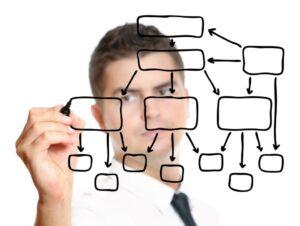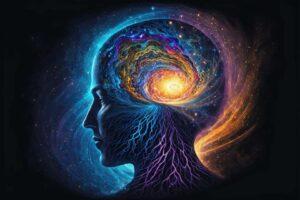A concept refers to an abstract or general idea that represents a category or class of objects, events, or phenomena. It is a mental construct that helps us organise and understand the world around us by grouping similar things or experiences into meaningful categories. Concepts play a fundamental role in cognition, language, and communication.
Key aspects of concepts include:
* Abstraction: Concepts involve abstraction, as they represent generalisations or mental representations rather than specific instances. They capture essential features or characteristics shared by members of a category while ignoring irrelevant or individual differences.
* Categorization: Concepts enable categorization, which is the process of assigning objects, events, or ideas to specific categories based on shared characteristics or properties. Categorization allows us to simplify and organise complex information, making it easier to process and understand.
* Classification and hierarchy: Concepts can be organised into hierarchical structures. Some concepts serve as broader, more general categories (e.g., "animal"), while others are more specific subcategories (e.g., "dog," "cat"). This hierarchical organisation helps us navigate the complexity of the world.
* Representation and mental imagery: Concepts involve mental representations that allow us to form images or mental models of the category. These mental representations help us recognise and identify instances of a concept and make inferences based on our knowledge and understanding.
Concepts play a vital role in various cognitive processes, such as perception, memory, reasoning, and problem-solving. They allow us to make sense of new information, make predictions, and apply knowledge to new situations. Concepts also serve as building blocks for language, as words and symbols are used to represent and communicate concepts.
Conceptual understanding can vary in terms of depth and complexity. Some concepts are more basic and universal, such as "time" or "number," while others are specific to certain domains or cultures. Concepts can evolve and change over time as new knowledge is acquired or perspectives shift.
Developing and refining concepts is an ongoing process that involves cognitive development, learning, and experience. Through exposure to diverse examples and experiences, individuals expand and refine their conceptual understanding. Education and deliberate learning efforts can further enhance conceptual knowledge and facilitate higher-order thinking skills.
Understanding concepts and their relationships is crucial for effective learning, problem-solving, and communication. By actively engaging with concepts, making connections between different concepts, and seeking deeper understanding, individuals can enhance their cognitive abilities and develop a more comprehensive and flexible knowledge base.
Concepts are fundamental building blocks of human cognition and play a central role in how we perceive, understand, and interact with the world. They enable us to navigate complexity, make sense of information, and continuously expand our knowledge and understanding.
Concept
Understanding concepts can aid by:
* Enhancing cognitive flexibility: Grasping various concepts allows individuals to adapt their thinking and consider alternative perspectives or solutions.
* Facilitating learning and comprehension: Concepts enable people to organise and categorise information, making it easier to learn and understand new ideas.
* Encouraging creative thinking: Understanding and working with different concepts can stimulate innovative thought and inspire new ideas or approaches.
* Promoting self-awareness: Reflecting on personal beliefs, values, and emotions can help individuals gain a deeper understanding of themselves and their experiences.
* Enhancing cognitive flexibility: Grasping various concepts allows individuals to adapt their thinking and consider alternative perspectives or solutions.
* Facilitating learning and comprehension: Concepts enable people to organise and categorise information, making it easier to learn and understand new ideas.
* Encouraging creative thinking: Understanding and working with different concepts can stimulate innovative thought and inspire new ideas or approaches.
* Promoting self-awareness: Reflecting on personal beliefs, values, and emotions can help individuals gain a deeper understanding of themselves and their experiences.
To improve your ability to understand and work with concepts:
* Engage in active learning: Read, discuss, and explore various topics to expand your knowledge and understanding of different concepts.
* Practice critical thinking: Analyse, evaluate, and reflect on the concepts you encounter, considering their implications and connections to other ideas.
* Develop problem-solving skills: Apply concepts to real-life situations, experimenting with different solutions and strategies.
* Cultivate curiosity and open-mindedness: Approach new concepts with a sense of curiosity and a willingness to explore different perspectives or possibilities.
* Engage in active learning: Read, discuss, and explore various topics to expand your knowledge and understanding of different concepts.
* Practice critical thinking: Analyse, evaluate, and reflect on the concepts you encounter, considering their implications and connections to other ideas.
* Develop problem-solving skills: Apply concepts to real-life situations, experimenting with different solutions and strategies.
* Cultivate curiosity and open-mindedness: Approach new concepts with a sense of curiosity and a willingness to explore different perspectives or possibilities.
Differentiating between concrete and abstract concepts is important because each type of concept serves a unique purpose and requires distinct cognitive processes. Concrete concepts are grounded in tangible objects or observable phenomena, making them relatively straightforward to understand and apply. In contrast, abstract concepts involve more complex or intangible ideas that may require higher-order thinking, introspection, and the ability to make connections between seemingly unrelated concepts. Recognising the differences between concrete and abstract concepts can help individuals tailor their approach to learning, problem-solving, and self-reflection.
Related Semantic Entities for Concept





